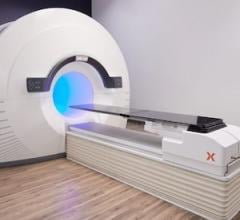
August 23, 2011 – In an extensive article reviewing the most popular prostate cancer treatments available to men today, South Florida urologist Bert Vorstman, M.D., takes a critical view on manufacturers, hospital systems and some colleagues who minimize the after effects of radical surgeries while continuing to endorse the procedures as a viable option.
"I believe that the radical surgical/robotic treatment option has single-handedly increased the incidence of impotence and incontinence worldwide, and physicians would do well to consider the Hippocrates affirmation: As to diseases, make a habit of two things – to help, or at least, to do no harm," said Vorstman in his article. "Men who choose these treatments without reviewing alternative, less invasive options are playing Russian Roulette with the quality of life prospects following the surgery."
One in six men in the United States will be diagnosed with prostate cancer in their lifetimes. Vorstman, a nationally recognized prostate cancer specialist with more than 30 years treatment expertise, advocates that men and their partners "do their homework" prior to selecting treatment for prostate cancer that could cause severe, lifelong quality of life issues.
"For some, these issues are worse than the disease itself," Vorstman said.
Today's men have four main definitive treatment options for localized prostate cancer, and these are high-intensity focused ultrasound (HIFU), cryoablation (freezing), radiation and surgical options. In most instances, all of these four treatment options are designed only for localized prostate cancer. The survival benefits are similar, yet the complications, including life-altering impotence or incontinence, vary tremendously between treatments.
"I want patients to realize that prostate cancer is not an emergency diagnosis," Vorstman said. "When we hear the word cancer, we assume fast, aggressive treatment is required. Most prostate cancers are slow growing, which means patients and their partners have time to do their research and make a fully informed decision about treatment. As long as the cancer is not growing aggressively, patients can wait before seeking treatment."
Vorstman urges men and their partners to get very involved in understanding the disease, treatment options and potential complications. "Men should seek written information they can review after their meeting with their doctor. They should also seek several opinions on the various treatment options available. Sadly, there is a lot of questionable information out there, as well as a propensity for medical spin and inflated egos."
The bottom line for patients facing this diagnosis is this, according to Vorstman: "Prostate cancer does not have to be cut out to offer a cure. There are minimally invasive treatments besides surgery that preserve quality of life and give men a better outlook in the future."
For more information: www.hifurx.com/prostate-cancer/prostate-cancer-after-effects/


 January 30, 2026
January 30, 2026 









